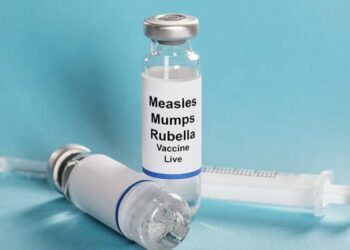The Federal Government has expressed concern over weak data systems, limited resources, and other bottlenecks hindering the country’s ability to achieve its nutrition goals.
Dr Emeka Vitalis Obi, Permanent Secretary, Ministry of Budget and Economic Planning, made this known on Wednesday in Abuja during the “Addressing Coordination Bottlenecks in Nigeria for Improved Nutrition Outcomes” progress.
The News Agency of Nigeria (NAN), reports that the event was organised by Nigeria Health Watch, and was aimed at addressing persistent challenges in the country’s fight against malnutrition.
Nigeria is grappling with significant nutrition and food security challenges, with approximately 37 per cent of children under five stunted, and seven per cent “wasted”.
These alarming figures point to the need for a more integrated approach.
Obi said that the situation persisted despite ongoing efforts to combat malnutrition through multisectoral collaboration.
He said that while numerous interventions had been launched by government agencies, NGOs, and international partners, weak data systems, fragmented policies, and resource gaps were hindering their effectiveness.
He said that the Ministry was at the forefront of coordinating food and nutrition-related interventions under Nigeria’s Medium-Term National Development Plan and Agenda 2050.
According to him, weak data systems, lack of personnel in nutrition divisions, and resource competition between sectors are major obstacles.
“Insufficient alignment between institutional programmes, gaps in communication among ministries, and the limited funding of nutrition programmes continue to impede progress,
“These barriers must be addressed urgently,” he said.
He highlighted the government’s effort to enhance monitoring through the National Nutrition Dashboard, developed with support from the World Bank’s Accelerating Nutrition Results in Nigeria (ANRiN) Project.
“The Dashboard enables more efficient resource allocation and programme evaluation nationwide.
“The 2024 World Bank array of projects must be completed. Strong project performance and collaboration are crucial for tackling Nigeria’s nutrition crisis,” he said.
Despite the challenges, he urged the government to remain committed to addressing these issues.
He urged sub-national governments to align their policies through platforms like the National Council of Nutrition, the Economic Council, and the Governors’ Forum.
Additionally, he called for strengthened partnerships with international organisations, noting that technical and financial support from such entities is essential for sustaining and scaling up nutrition programmes.
“With the passage of National Council on Nutrition (NCN), there is renewed momentum to implement the multisectoral plan of action for food and nutrition.
“But without improved data systems and adequate resources, achieving our nutrition goals will remain a challenge,” he said.
He reaffirmed the government’s dedication to improving nutrition outcomes, particularly for vulnerable groups like children under five and women of reproductive age.
Ms Nemat Hajeebhoy, UNICEF Nigeria Chief of Nutrition, stressed the urgent need for better coordination to advance nutrition efforts in Nigeria.
Hajeebhoy highlighted the importance of ensuring that each ministry, department, and agency understands its responsibilities for nutrition actions, financing, and data management.
She underscored the importance of evidence-informed policies in shaping the country’s nutrition strategies.
She said that strong data systems were crucial for identifying gaps and driving impactful interventions, quoting Kofi Annan: ‘Without data, we are flying blind”:
Mrs Ladi Aiyegbusi, Head of Nutrition, Federal Ministry of Health and Social Welfare, said that despite limited funding, collaboration with partners was helping to bridge the gaps.
Aiyegbusi said that grassroots coordination was being strengthened through state-level committees and annual operational plans, aligning efforts for better results.
She also explained the crucial role of the National Council of Nutrition, chaired by Vice-President Kashim Shettima, in coordinating multi-sectoral nutrition interventions.
She disclosed that over 2,000 master trainers across 36 states were leading maternal and child nutrition efforts.
Mr Jalo Ali, Permanent Secretary, of Gombe State Ministry of Health, said that malnutrition was no longer a regional issue, but now a national issue.
“Policies exist, but without adequate resources, implementation remains a challenge,” he said.
He highlighted that donnor funding can not cover all Local Government Areas in the State, leaving gaps that hinder real progress in tackling malnutrition.
He said that in Gombe State, volunteers were being equipped to identify and refer malnourished children.
“However, gaps in health services persist. Strengthening collaboration and building capacity is essential to closing this gap,” he said.
Ms Adanna Opara, Programmes Manager, Nigeria Health Watch, explained key areas where nutrition coordination gaps persist in Nigeria.
Opara highlighted the challenges of undernutrition, which include stunting, wasting, and being underweight.
“Overnutrition issues, such as overweight, obesity, and diet-related non-communicable diseases (NCDs), also persist.
“Micronutrient deficiencies, including vitamin A and folic acid, as well as minerals like iron, zinc, and iodine, are significant concerns,” she said.
She said that in Nigeria, overnutrition was prevalent, with 20.3 per cent of the population being overweight and 11.6 per cent classified as obese.
“Diabetes affects 3.7 per cent of the population, translating to 3.623 million cases among adults, according to the 2021 International Diabetes Federation, “ she said.
She disclosed that hypertension and heart diseases were also widespread, affecting 31.2 per cent of Nigerians, with 29.5 per cent of men and 31.3 per cent of women suffering from these conditions.
She said that NCDs account for 29 per cent of all deaths in Nigeria and 11 per cent of deaths in children are due to cardiovascular diseases, according to a 2018 WHO NCD profile.
She said that cancer was another pressing issue, with 115,950 total cases recorded in the country, as per the Global Cancer Observatory in 2018.
Opara underscored the need to discuss breastfeeding rates in the context of nutrition.
“Nigeria’s current exclusive breastfeeding rate falls below the targets set by global and national bodies, underscoring the need to address these challenges,” she said.
NAN recalls that given the scale of malnutrition in Nigeria, this event comes at a crucial time.
It is part of a larger national push to meet global nutrition targets and Sustainable Development Goals (SDGs), especially as the country works towards reducing hunger and malnutrition by 2030.
With a range of stakeholders, the event generated actionable recommendations to address coordination gaps.
These solutions could lead to better nutrition policies, increased budgetary allocation, and more sustainable outcomes for Nigeria’s food security agenda.
By bringing together diverse voices and expertise, the programme will foster the collaboration needed to ensure that Nigeria can effectively combat malnutrition and food insecurity.
It will achieve this by paving the way for improved public health and economic growth.(NAN











